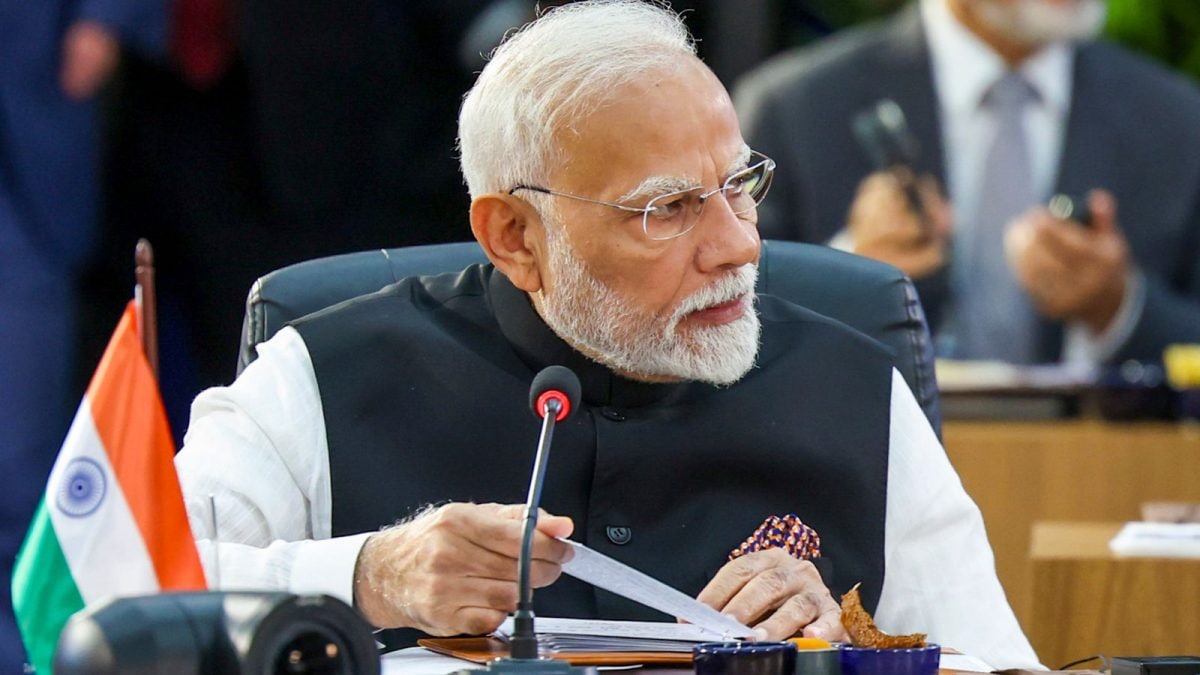ARTICLE AD BOX
Last Updated:July 06, 2025, 21:01 IST
Intelligence sources said the Dalai Lama's 90th birthday and his reincarnation statement have strategic implications that directly challenge China's religious authority

Tibetan spiritual leader the Dalai Lama speaks via a video message released on July 2. (Image: PTI)
The question of reincarnation of the 14th Dalai Lama has become a strategic battlefield, not just a spiritual one as India faces a major challenge as the host of His Holiness and the Tibetan government-in-exile.
Beijing will exert immense pressure on India to prevent any reincarnation process on its soil, top intelligence sources told News18.
According to the intelligence sources, the Dalai Lama’s 90th birthday and his reincarnation statement have strategic implications that directly challenge China’s religious authority.
The 14th Dalai Lama, Tenzin Gyatso, turned 90 on Sunday. While he has ended speculation on whether he will have a successor or not after his death by reaffirming his succession plan, this is set to escalate tensions with China that has rejected it.
China has said any future heir must receive its seal of approval, adding a new chapter to Tibetan Buddhism’s decades-long struggle with the Chinese ruling Communist Party (CCP).
On July 2, the Dalai Lama affirmed that the sacred institution of the Dalai Lama will continue and only the Gaden Phodrang Trust will have the authority to recognise his future “reincarnation", declaring no one else can “interfere" in his succession plan.
The Gaden Phodrang Trust, a non-profit organisation, was founded by the Office of the Dalai Lama in 2015. “I am affirming that the institution of the Dalai Lama will continue and I hereby reiterate that the Gaden Phodrang Trust has the sole authority to recognise the future reincarnation. No one else has any such authority to interfere in this matter," his statement said.
The sources said this statement has struck at the core of China’s ideological control over Tibetan Buddhism, disrupting Beijing’s long-term strategy of creating potential obstacles if reincarnation occurs in India.
China, which was quick to reject the Nobel Peace laureate’s succession plan, has said the reincarnation of the Dalai Lama and Panchen Lama – the second-high priest of Tibetan Buddhism – has to go through the centuries-old tradition of the ‘Golden Urn’ law procedure started by the 18th century Qing dynasty.
“The Dalai Lama’s reincarnation must follow the principles of domestic recognition, the ‘Golden Urn’ process, and approval by the central government, in line with religious traditions and laws," a spokeswoman told a media briefing in Beijing while responding to the Dalai Lama’s announcement.
China has spent over a decade preparing to install a state-backed 15th Dalai Lama, aimed at neutralising Tibetan resistance by co-opting religious legitimacy, the sources said. The Dalai Lama’s move, however, delegitimises any future CCP-appointed figure in the eyes of Tibetans and the global Buddhist community, they said.
They further said by raising the reincarnation issue now, the Dalai Lama has thwarted China’s expectations of exploiting a leadership vacuum after his death. Any reincarnation in India would create a geo-religious duality: a legitimate Dalai Lama in exile and a Chinese proxy in Lhasa, they added.
WHAT HAPPENS TO INDO-CHINA TIES?
The sources said the situation casts doubt on Beijing’s religious interference and escalates India-China tensions over border and exile politics.
The Tibetan community and the wider Buddhist world are unlikely to accept a CCP-controlled successor, especially one imposed from Beijing, they said. This move threatens to disrupt China’s religious diplomacy, particularly in Tibetan Buddhist regions in Mongolia, Ladakh, Bhutan, and Sikkim, they added.
Anticipating resistance and renewed spiritual assertion, the sources said, China is expected to intensify ideological campaigns, arrests, and surveillance within Tibet by targeting monasteries and monastic educational institutions.
They also said the reincarnation statement has revived international focus on Tibet’s political status, prompting democratic countries to scrutinise China’s human rights record and impact its soft power image. The CCP may fast-track the selection of a rival Dalai Lama to counter the growing legitimacy of any India-based spiritual successor, they added.
Group Editor, Investigations & Security Affairs, Network18
Group Editor, Investigations & Security Affairs, Network18
- Location :
- First Published:
News india China May Exert Pressure To Prevent Dalai Lama Reincarnation On Indian Soil: Sources



.png)
.png)
.png)
















 2 hours ago
5
2 hours ago
5









 English (US) ·
English (US) ·